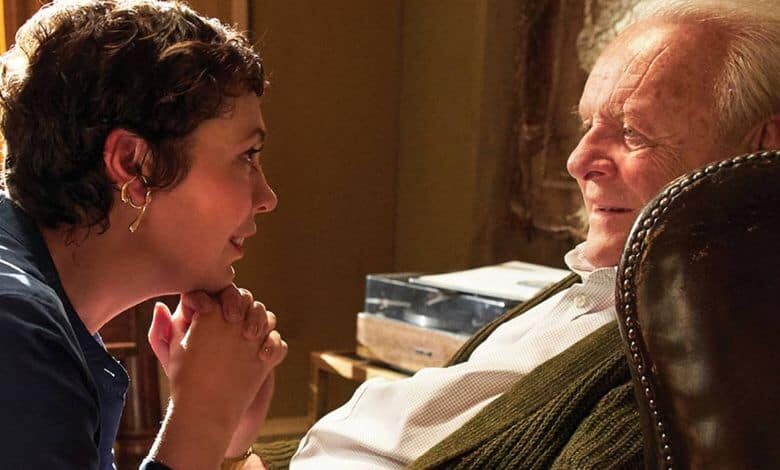
Florian Zeller’s “The Father” begins with Sir Anthony Hopkins’ crusty but pleasant patriarch enjoying a quiet morning in his apartment.
A visit from the character’s daughter brings pleasant conversation, as well as discussions about potential life changes. Later, after his daughter exits the apartment to shop, she re-enters but is not the same person. While the younger version that enters seems to say and think the same way as the prior version of his daughter, it’s clearly a younger, different person.
Hopkins’ Anthony struggles to grasp even the simplest details of his reality, as alternating figures, anecdotes and possibilities arise on a constant basis. While it seems he is losing control of his mind, we also wonder how much of what we’re seeing is real, too.
Zeller, making a smashing film debut, has adapted the screenplay from her play of the same name, with no less than Christopher Hampton as her co-writer.
“The Father” cleverly draws us in, making us think we’re in for the equivalent of a glossy Hallmark TV movie. Instead, this tricky mystery frequently blindsides us with yet one stunning twist after another. As this sort of thing goes, it provides a welcome manner to explore the topic of dementia, as this psychological thriller allows for some grim topics to become accessible and universal for younger audiences.
Zeller and Hampton have reshaped a theater piece in a way that mostly transcends its stage origins and opens up a potentially claustrophobic drama. While this is dialog and character-driven, it doesn’t call attention to its origins, nor is it a drama that could only work in a theater.
FAST FACT: Hopkins boasts an impressive Instagram flock of more than 2.5 million followers.
This is one of Hopkins’ best performances, which is no small compliment and intended as high praise. While a hard-working actor with nothing left to prove, some of Hopkins’ weaker recent films show him winking at the camera and not fully engaged.
Here, there’s no theatrical bluster, ironic line readings or actorly behavior to detach him from his character – Hopkins is so natural and raw here, you’d have to look back into his decades of work to find a performance this equally vulnerable.
A great revolving door of supporting actors are in top form – recent Oscar winner Olivia Colman, a never better Rufus Sewell, the always arresting Olivia Williams and the consistently engaging Imogen Poots are all excellent, in roles that are better seen than described.
Thematically similar to last year’s “Relic,” though this is a far more grueling portrait of an aging mind coming undone. I admired how the film pulls us into Anthony’s mindset, creates sympathy and allows us to share his confusion and struggle for clarity.
Since the reality of the protagonist and the supporting characters is always shifting, it’s difficult to fully connect emotionally with everyone. The central mystery, as clever as it is, prevents us from putting all the pieces together until the very end and sidesteps proper character development.
Like Anthony, we take everything on a scene-to-scene basis, making note of key details (like a decision to move that always seems to shift from moment to moment) and pondering which clue, if any, will lead us to the truth.
“The Father” succeeds at creating understanding and empathy for those suffering from dementia, which is itself is an achievement. This, alongside the 2014 Julianne Moore vehicle “Still Alice” and Sarah Polley’s “Away From Her” (which are both about Alzheimer’s Disease but tackle the material in similarly effective, dynamic ways), are superior examples of how to use cinema as a means of grasping the horror and realities of an unreliable mind.
Three Stars
